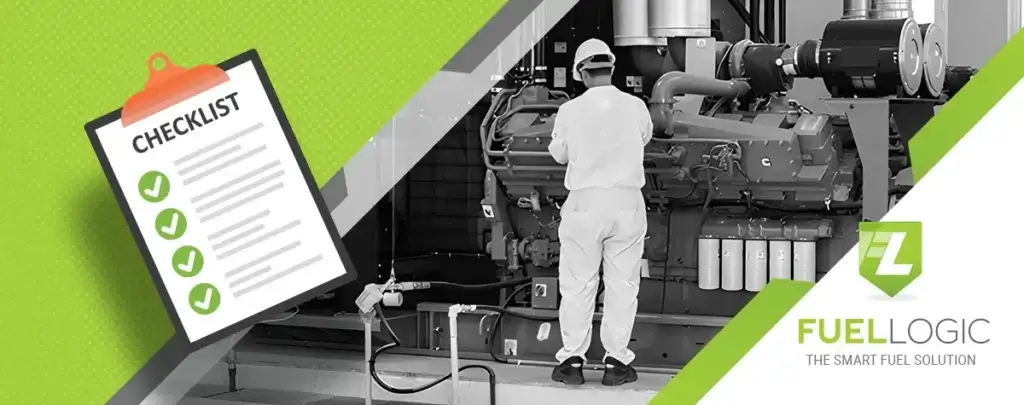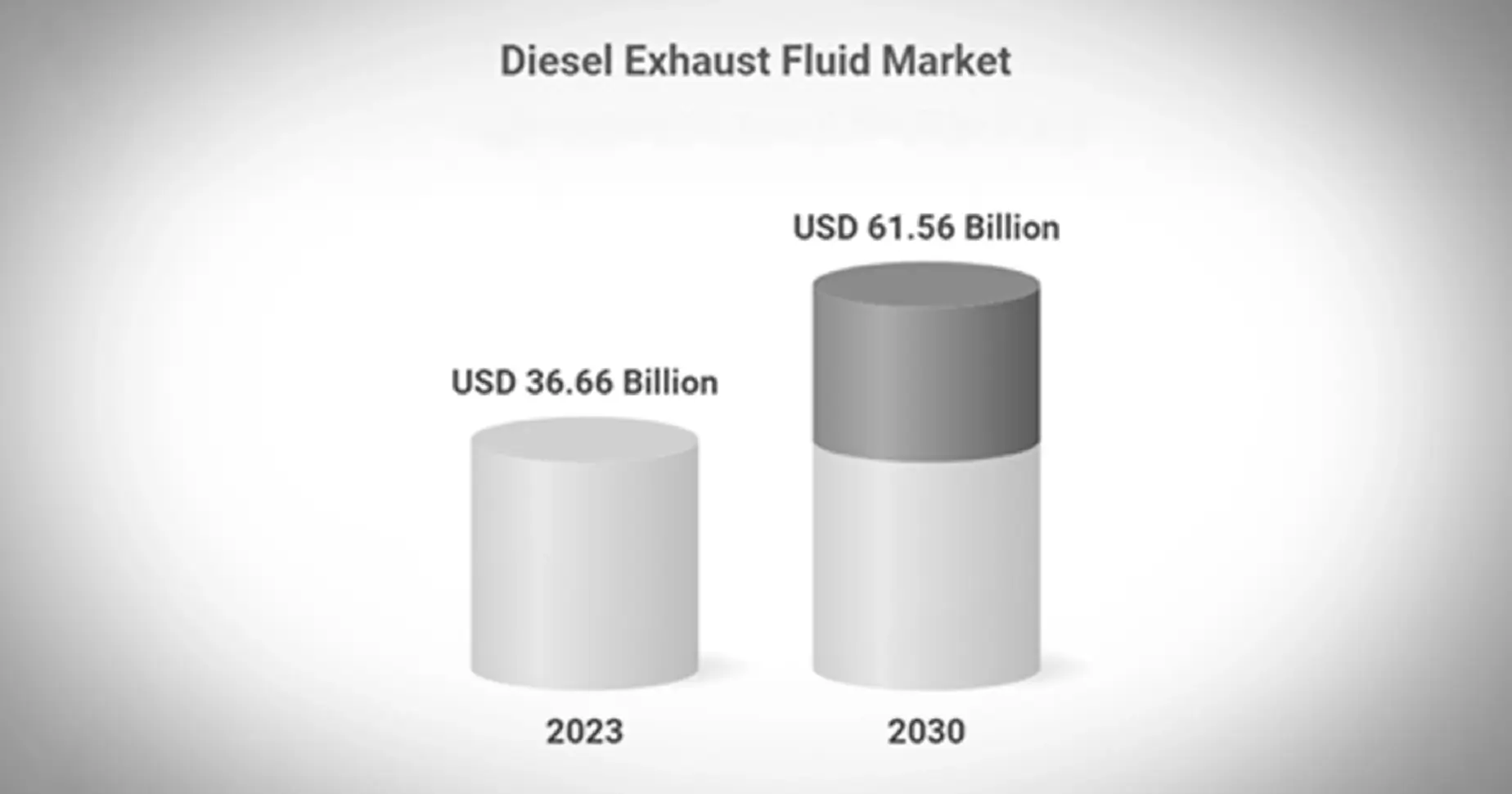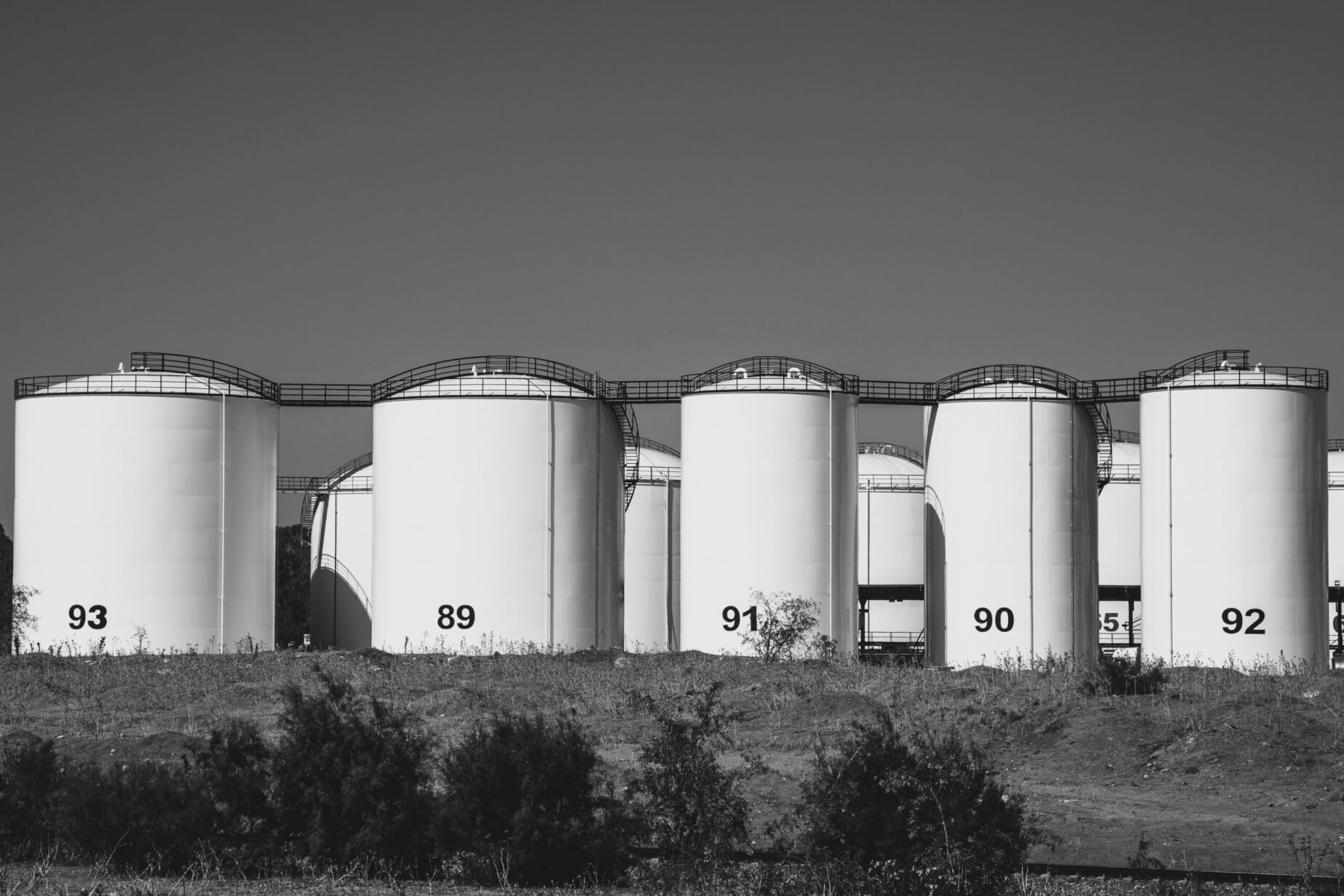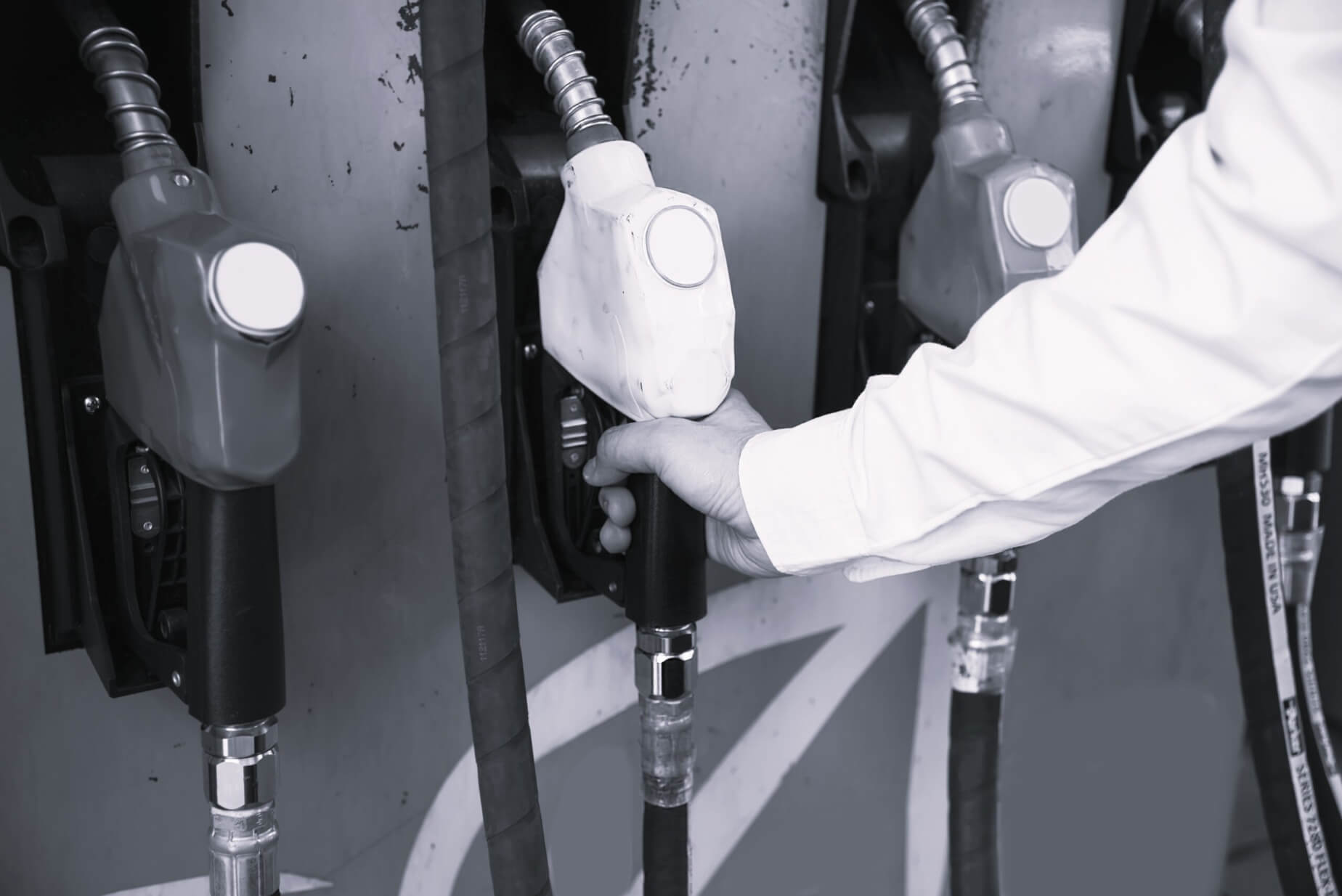Commercial generator maintenance is crucial for supplying uninterrupted power in the event of a power outage, and neglecting this maintenance can lead to failures when needed most. However, by following a comprehensive and preventive maintenance checklist, you can mitigate these risks and prolong the lifespan of your generator. In this article, we will provide a commercial generator maintenance checklist, discuss the benefits of regular maintenance, and answer some frequently asked questions. Keep reading!
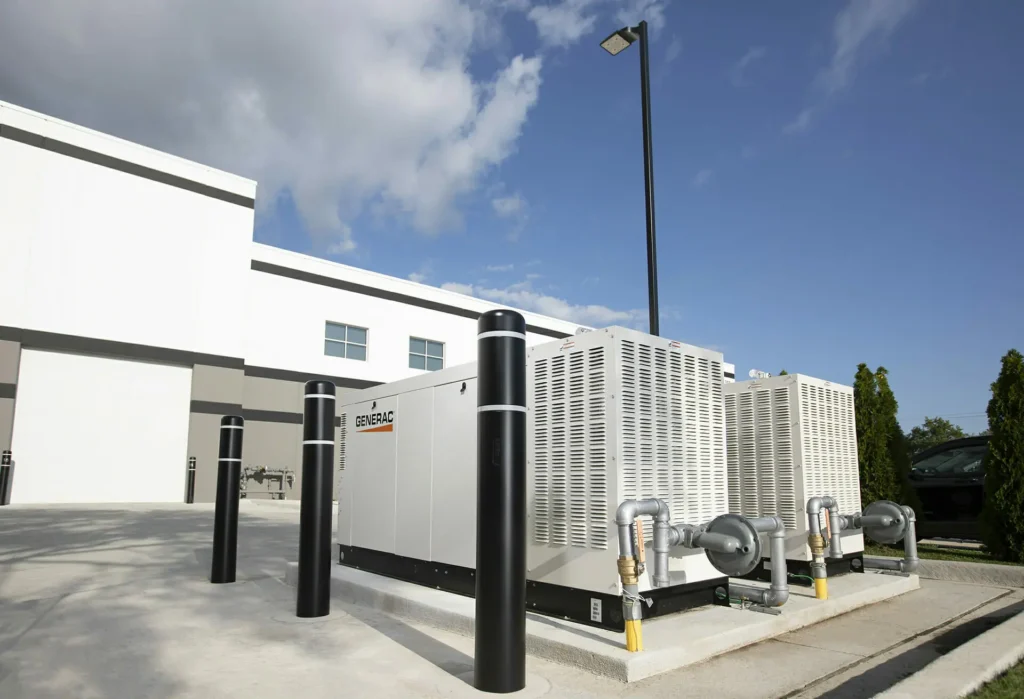
The Importance of Generator Maintenance
There are many reasons why generator maintenance is important. First of all, it can help you keep costs down as it can prevent expensive repairs and even extend the lifespan of your generator so you don’t have to buy another one. Also, since the main purpose of a commercial generator is to provide power during crucial moments, it’s imperative that you have a reliable best generator, which regular maintenance can promote.
Commercial Generator Maintenance Checklist
Maintaining a commercial generator requires several tasks. Keep reading to learn what this includes.
🗹 Changing serviceable parts
Regularly changing serviceable parts in a commercial generator is essential for optimal performance and longevity. These key components include air filters, oil filters, fuel filters, and spark plugs, all crucial for the optimal functioning of your power system.
🗹 Check and Replace Fuel
When it comes to running commercial generator maintenance, proper fuel management is crucial. Regularly check and replace old or contaminated fuel to promote optimal performance. Research shows that diesel fuel can just last up to 12 months in a generator, depending on factors like temperature, humidity, and the quality of the fuel. Not changing the fuel in time can cause clogged fuel filters or even total engine failure, so don’t miss this step.
🗹 Oil Change
Engine oil is an extremely important factor in the health of your generator. In general, experts recommend changing your oil after every 50 to 200 hours of use. You’ll want to do this regularly because dirty oil can cause reduced performance and efficiency of your generator.
🗹 Check Fuel Levels and Quality
Generators require a regular fuel supply, so make sure to check their fuel levels regularly. Also, make sure you are using high-quality fuel (whether it’s natural gas or diesel fuel), which you can get from a trusted generator refueling service like Fuel Logic’s.
It’s also important to look for contamination in the fuel you currently have to know if you need to replace it. Types of contamination may include things like water contamination, as well as dirt, rust, and other particles.
🗹 Inspect and Clean Cooling Systems
Inspecting and cleaning the cooling systems is a large part of maintaining a commercial generator and avoiding overheating. Make sure to do the following:
- Regularly check the cooling levels to make sure they are within the recommended range.
- Inspect the lines and connections for leaks or blockages.
- Inspect and flush the cooling system according to the manufacturer’s instructions.
🗹 Battery and Transfer Switch Testing
In order to make sure that your generator reliably starts, it’s important to inspect the battery for wear, ensure it’s charged, tighten loose connections, and check that the battery terminals are free of corrosion. If you see corrosion in the battery terminals, you can clean it carefully with a toothbrush and cleaning spray. Besides the battery, you’ll also want to conduct regular transfer switch testing, which you’ll do when the power is off during non-operating hours.
🗹 Air Filter Replacement
Air filters promote proper airflow to the engine and prevent debris from causing damage, which is why it’s so important that they are regularly checked and replaced. Air filters tend to need to be changed on an as-needed basis, and if they look dirty or have a lot of debris, it’s time to get them replaced.
🗹 Belt and Hoses Inspection
Regularly inspecting belts and hoses in a commercial generator is essential to prevent damage and unexpected breakdowns. If they are torn, frayed, or overstretched, they need to be replaced.
Benefits of Regular Maintenance
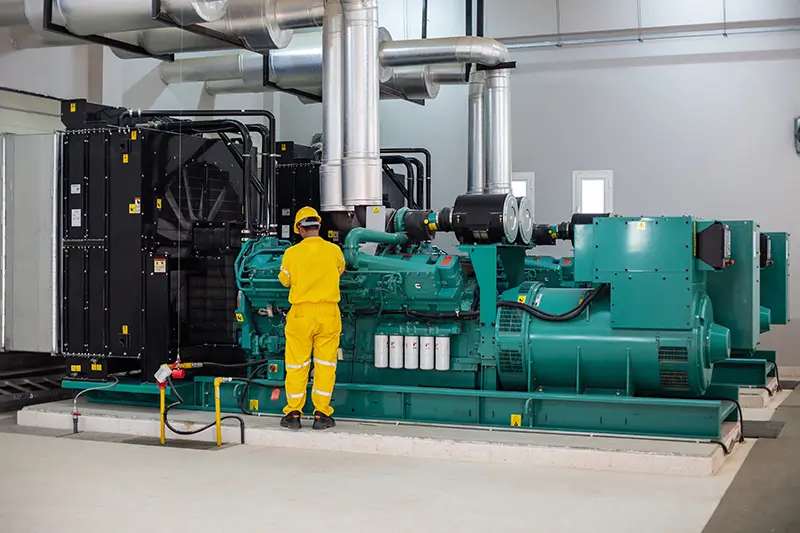
Regular maintenance of a commercial generator comes with many benefits. It can ensure optimal performance by identifying and addressing issues in the exhaust system early and preventing downtime. Proper maintenance also prolongs the lifespan of the generator and minimizes repair expenses. Ultimately, by regularly performing maintenance tasks, you can make sure your generator is able to provide uninterrupted power supply during emergencies, which protects business operations and minimizes any financial losses.
Recommended Maintenance Tasks and Schedule
It’s clearly important to perform maintenance tasks for your generator regularly. However, there are some maintenance tasks that need to be performed more often than others. For a breakdown, follow the generator maintenance schedule below.
Daily/Weekly
- Fluid level checks (such as oil, coolant, or fuel)
- Perform any adjustments
- Inspect the battery
- Clean terminals
- Check for worn parts (and replace them if needed)
Monthly
- Load bank testing
- Fuel system maintenance, including inspection and testing
Quarterly/Biannually
- Replace air and fuel filters
- Tighten connections
Annually
- Change engine oil and coolant
- Perform a comprehensive inspection.
How to Properly Test Your Generator?
Besides the other maintenance tasks in this checklist, it’s important to test your generator to make sure everything is working properly. Commercial generators need load bank testing to highlight any problems with the generator that could prevent them from functioning and to confirm that they are ready to perform at full power at any given time. There are a few steps in a load bank test:
- Connect the load bank to the generator.
- Run the generator until it gradually reaches 100% capacity.
- Move the manual or automatic transfer switches to their emergency setting.
- Apply the load until it reaches the desired load level.
- Remove the load bank and move the transfer switches back to normal.
This load bank test will reveal if there are issues such as leaks, lack of voltage stability, or an inability of the engine to achieve the right output.
How Much Does Generator Maintenance Cost?
The cost of generator maintenance depends on a variety of factors, including the generator’s brand, engine size, fuel type, age, and usage frequency. Your location also affects how much maintenance will cost. Generator repair service charges are typically between $300 to $900, while general maintenance plans can typically cost around $500 to $2,000 a year. Since these are just estimates, the only way to know how much generator maintenance will cost you is to get a quote from a maintenance provider.
Choosing the Right Maintenance Provider
When choosing for a commercial generator maintenance provider, there are many things to look out for. Here are a few:
- Licenses and certifications: Make sure the service provider has the required licenses and certifications to do business in your area. Certified providers minimize the risk of errors, and their work is more reliable.
- Experience: Choose a provider who has a good track record in the industry and plenty of experience.
- Customer reviews: A company with many happy customers is much more likely to satisfy its future customers as well. Look for online reviews or even experiences from people you know.
- Service offerings: Another crucial thing you need from your provider is for them to offer what you need, whether that be emergency support, maintenance, repairs, or even on-site training for technicians.
While some tasks like checking and replacing fluid levels (like coolant and fuel) may be suitable as a DIY task, more complex tasks like load testing or electrical repairs should generally be left to the professions to avoid accidents.
FAQs (Frequently Asked Questions)
How long do commercial generators last?
Commercial generators typically last around 20 to 25 years. Of course, with proper maintenance and care your generator may last on the longer side, maximizing your investment.
How often should a commercial generator be serviced?
In general, a generator should be serviced by a professional at least once a year to make sure everything is working in order and to perform more complex maintenance tasks.
What are the potential consequences of neglecting generator maintenance?
Neglecting generator maintenance can lead to a variety of consequences, including increased risk of breakdowns, reduced efficiency, and higher repair costs. It can also lead to a shortened lifespan of the generator.
How often should I run my generator to ensure it’s in good working condition?
It’s generally recommended that you run your generator or “exercise” it for at least 30 minutes a month with a load between 30% and 70% of the generator’s capacity. This practice helps prevent fuel degradation, ensure battery health, and prevent mechanical issues.
How do I prepare my generator for extreme weather conditions?
Extreme weather conditions sometimes happen, so it’s important to prepare for them ahead of time. For example, if you live in an area that experiences occasional extreme weather conditions like hurricanes, you can prepare your generator by:
- Keeping it at least six feet away from your premises
- Keeping it away from doors and windows
- Making sure the it’s exhaust is facing away
- Using an enclosure (like a tent or canopy) to protect the generator
It’s also important to winterize your generator in case of a sudden drop in temperature to prevent corrosion, engine breakdown or issues, and diesel gelling. For more information on how to do this, read our other article here.
Rely on Fuel Logic for Your Generator Fuel
Proper commercial generator maintenance will save you time and money, as well as protect you from issues in the future. An important part of this maintenance is for your generator to maintain proper fuel levels to ensure optimal performance of your equipment.
At Fuel Logic, we offer no-hassle diesel fuel delivery nationwide (which you can order online or via phone) with our mobile fuel delivery service. We make it extremely convenient for you to check off fuel replacement from your list of maintenance tasks.
Order fuel online or contact a fuel delivery specialist today!

